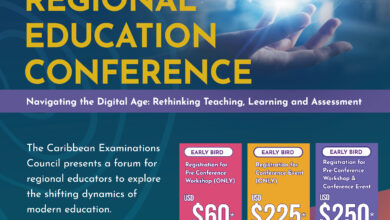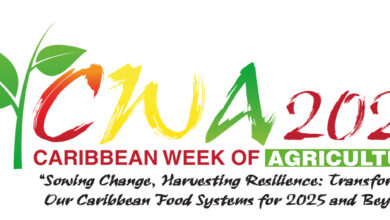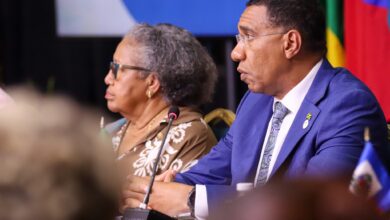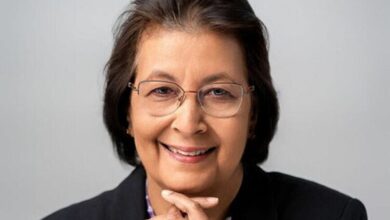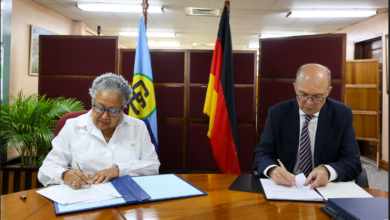I am pleased to lead my country’s delegation to this Fifth Meeting of the Council for Human and Social Development (COHSOD) and to bring greetings to you in our capacity as its out going Chair.
At our national COHSOD this year, the social sector Ministers and Technical Advisors had an opportunity to review the development of this Council over the past year. We would therefore like, first of all, to commend the Directorate of Human and Social Development for providing the working document for this meeting one month ahead of schedule. This is in keeping with one of the recommendations from COHSOD IV held in Georgetown in October 2000. We also wish to commend the Directorate for the production of the inaugural issue of the biennial COHSOD Newsletter in June 2001.
It provided member states with a good idea of how the decisions from COHSOD IV were being implemented. We noted in particular the work on accreditation and common standards, which is so critical if the free movement of skills is to be meaningful within the CARICOM Single Market and Economy. We also note the major strides made in the area of HIV/AIDS since the establishment of the Caribbean Task Force and its development of an action plan. The expansion of the Programme Implementation Unit within the CARICOM Secretariat, the role that it is playing in a coordinated response by the Region has already been mentioned by the Secretary-General in his remarks. I happened to see this machinery in action as it anchored the contributions of the Caribbean delegation to the UN Special Session on HIV/AIDS (UNGASS). We are pleased that the Declaration of Nassau has reinforced the principles of Adam Smith by advocating that the health of the Region is the wealth of the Region.
We are pleased that the Directorate has followed through on three recommendations to advance the work in some critical areas by the creation of task forces. At this meeting we look forward to discussing the results from the Gender and Development Policy Round Table held yesterday, and on the Forum on Reduction of Demand held last week. We also look forward to receiving reports from those Special Meetings of COHSOD held by Ministers of Sports and Culture respectively, and other specially convened meetings such as the Caucus of Ministers of Health and Directors of Youth, following on from the Meeting of Ministers of Youth that preceded COHSOD IV.
We are also pleased that the directorate has sought to utilise the UWIDEC System to hold special meetings. In the cases of the preparation of Caribbean positions for the ILO meeting in Geneva in April 2001 and for the UNESCO Summit in Bolivia in June 2001, these online conferences which facilitated the participation of ministers and technicians across the Region proved invaluable. However, these teleconferences were not without their frustrations and related to difficulties in transmission and disparity access by some countries. Emphasis must be placed on improving this media of communication if we are to truly respond to the challenge by the Secretary-General in revamping the organisational aspects of how we do business.
The discussions on an HRD strategy for the Caribbean that will be the focus of this meeting provides a pivotal challenge especially in the context of the times so ably described by the Secretary-General. I could not agree with him more when he said that the rapidly changing global scenario circumscribes any strategy we may advance and therefore the elements of a strategy, no matter how comprehensive and incisive, must be continuously under review if we are to be relevant in the contemporary world. We therefore need to pay some more attention to the issue of how to avoid the inequities that may be caused in bringing into effect the new information technologies {the digital divide as it is often referred to}. We also need to address the issue as to how to infuse the development process with greater attention to science and technology, referred to in the 1997 Strategy by our Heads of Government. In so doing , however, we also need to ensure that science and technology policy and its application are grasped by the people for whom it is intended. What I am implying here is the need to focus on communications and information that engage all sectors of the community at the regional as well as the national levels. Without attention to this element an HRD Strategy will become another instrument on the dusty shelves or entries in the computers of our policy-makers as another exercise in futility.
I am happy that this COHSOD makes provision for participants to follow-up the issues in plenary in greater detail in working groups. I also believe that we need to take up the critical challenge by the Secretary-General on the organisation of the national COHSOD. But maybe it is worthy to consider that the COHSOD follow the model of the quasi-cabinet whereby heads of government allocate portfolios among them with responsibilities for various aspects of the Community’s work. The aim is to make inter-sectoral collaboration a meaningful enterprise and to elevate it beyond mere rhetoric.
Saint Lucia was pleased to have served as chair of the COHSOD and we pledge to continue working towards the COHSOD objective of investing in human resources with equity.

